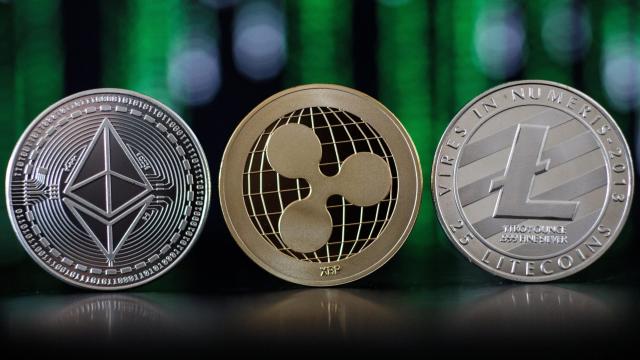As the Biden administration wrestles with plans to wrangle the notoriously under-regulated world of cryptocurrency, some officials are apparently taking cues from the tightly-controlled world of banks. That’s according to a new report from the Wall Street Journal claiming that some members of the administration are looking to impose “bank-like regulation” on crypto companies that issue stablecoins — a type of crypto which is supposed to link its value to a relatively stable asset like the U.S. dollar.
Stablecoins have been under rising scrutiny over the past few months by some members of the Federal Reserve over fears that this currency might not be as stable as its name would lead you to believe. Back in August, some officials in the Reserve noted that the market around these coins featured the same “fragility and the general lack of transparency” we’ve come to associate with their volatile crypto cousins like Bitcoin or Ethereum.
As a recent New York Times article points out, a common thread behind Washington’s worries is that firms currently issuing stablecoins — like Tether or Circle — aren’t beholden to standard disclosure requirements the way modern banks across the country are. That means from the outside, it’s nearly impossible to know what stable asset is being tied to a stablecoin’s value, and that means it’s nearly impossible to gauge how much risk that crypto entails.
This lack of transparency has drawn regulatory worries about potential bank runs that might happen if enough Tether or Circle investors get cold feet and rush to cash in their digital coins. Just like a regular bank, these companies are at risk of imploding if too many customers rush to make too many withdrawals at once.
Meanwhile, we got a taste of just how real these risks are earlier this year. In February, iFinex — the company behind the popular stablecoin Tether, and the equally popular crypto exchange Bitfinex — was forced to cease all trading in New York after state officials found that Tether had been misleading clients about its crypto’s dollar peg since mid-2017. According to the state Attorney General, the company had “no access to banking” and “held no reserves to back tethers in circulation” during this time, resulting in the state-wide ban and an $US18.5 ($25) million fine being levied against the parent company. Since then, U.S. officials have reportedly issued a broader probe into the company on grounds that Tether might have initially lied to banking partners about their transactions being tied to crypto.
As sources familiar with the White House’s plans told the Journal, one way to keep another Tether situation from happening would be politely pressuring stablecoin firms to register as banks, which are more transparent than their crypto counterparts by design. Obviously, that’s unlikely to work. Polite pressure sounds about as pointless as the government throwing a penny in the wishing well. Another suggestion would be creating a new kind of bank charter catered to the crypto company’s business model.
Both of these suggestions — and likely more to come — came as part of a Treasury group session that is penning a stablecoin advisory report to be released later this month. The upcoming document was first announced this past July, hot on the heels of a co-authored paper by Federal Reserve attorney Jeffery Zhang and and Yale University economist Gary Gorton describing just how dangerous a stablecoin-induced bank run could be. Per the Journal, the report is still half-baked, and its recommendations “are still being negotiated” by the advisory committee. And at least this early on, we don’t know how these new rules would be enforced.
On the bright side, at least one stablecoin issuer seems to be on board with the whole “becoming banks” idea; a Circle spokesperson told Coindesk that the company “has already been working toward becoming a full-reserve national commercial bank,” and that it “strongly [believes] that a full-reserve banking model built on digital currency technology can lead to a more efficient, fair, inclusive and resilient financial system.”
As Circle also laid out in a recent regulatory filing, becoming a bank also means less reliance on third-party systems. “As part of our strategy to reduce our dependence on third parties, we may in the future consider pursuing a U.S. national bank charter or evaluate the acquisition of a national bank,” the company wrote in an August filing with the Securities and Exchange Commission. “This would allow us to access the Federal Reserve System directly, reducing the costs and time for settling transactions.”
So maybe if the Treasury’s polite recommendations fall through, the allure of being a self-reliant fintech provider will convince more stablecoin providers to side with Big Bank.
We’ve reached out to the Department of Treasury for comment on the Journal’s report and will update this post when we hear back.
